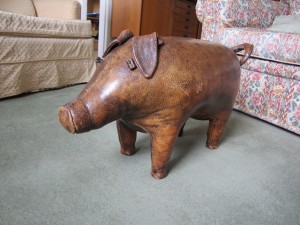Community
September 4, 2013
“A More Platonic James Bond”
Over the past few months, some wonderful recordings of George Whalley have come to light. When I visited with his daughter Katharine in June, I discovered two cassette tapes that she had been given 30 years ago. The recordings had survived and the audio is excellent. In the last two months, Jen Hardwick, a PhD candidate in English at Queen’s University, has been making digital copies of recordings on reel-to-reel tapes that Whalley once owned and donated to the Queen’s University Archives. On many of these the sound quality is excellent. Several of the recordings have been edited and added to the website: http://georgewhalley.algomau.ca/drupal6/node/76.
There is a fascinating autobiographical fragment that Whalley recorded on March 21, 1977. The reflections on his childhood and the lively conversations he heard at home are remarkable.
Long before Elizabeth Hay wrote Late Nights On Air – a novel deeply rooted in Whalley’s The Legend of John Hornby and his radio drama Death in the Barren Ground – and received the Giller prize, she lived in Yellowknife and was friends with Katharine. In April 1976 Whalley visited Yellowknife, having been there a few years back to after driving a VW Beetle from Edmonton for his daughter and her husband. Elizabeth interviewed Whalley about Hornby, a book she read years before and admired very much.
On February 23, 1967, F.R. Scott gave a poetry reading in the Agnes Etherington Art Centre at Queen’s University. Whalley made the introduction that evening. They had known each other for many years: they co-organized the Writing in Canada conference at Queen’s University in July 1955 and Scott contributed an essay to A Place of Liberty, a collected of essays on university governance that Whalley edited. Whalley’s introduction is unlike any other Scott was given, I suspect: http://georgewhalley.algomau.ca/drupal6/node/1885.
The selection of readings of Whalley’s poems, taken from two tapes recorded about a decade apart, allows us to hear the pieces differently than we will when reading them for ourselves.The laughter raised by “A Minor Poet is Visited by the Muse” is well worth hearing: http://georgewhalley.algomau.ca/drupal6/node/1781. The reading of “Pig” resonates for me: http://georgewhalley.algomau.ca/drupal6/node/1786. I saw the pig in Southwold (it made the trip back to England many years before).

The pig, purchased at Herrods, that travelled under Whalley’s arm from London in “defiance of all airline and government regulations.”
Doug Jones and Whalley gave a joint reading at the Agnes Etherington Art Centre on March 10, 1966. Jones introduces Whalley as “a more platonic James Bond,” which raises great laughter from the audience. What was the expression on Whalley’s face at that moment? And how many in the audience had any sense of the truth behind the remark, any knowledge of Whalley’s secret intelligence work for the Royal Navy in World War II?
Whalley much admired the poetry of Donne, Hopkins, and Yeats. Of Yeats, Whalley wrote “He has been my greatest despair & encouragement” in a 1945 letter to Arnold Banfill. Whalley’s deep attachment to the writers can be heard in his readings of Donne’s “The Relic,” Hopkins’ “The Windhover,” Yeats “The Second Coming,” and the others published here. Listening to Whalley read the poems, as if he can effortlessly voice the styles and the rhythms, makes me realize how difficult it is to read poetry well.
The website will be slowly updated and revised over the next several months. In the meantime, it is worthwhile to draw attention to the recordings now published.